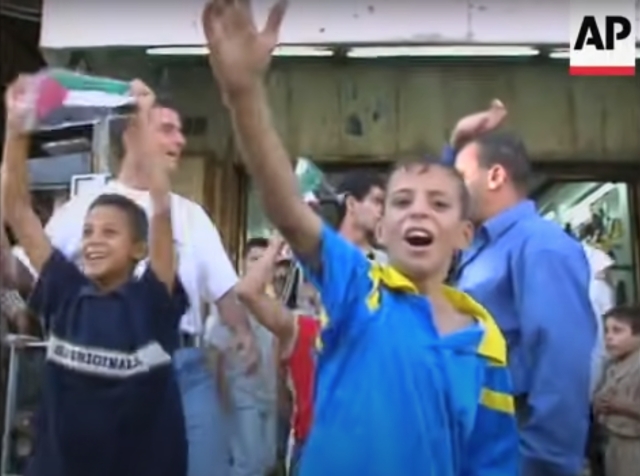On this somber 22nd anniversary of the 9/11 attacks, it becomes imperative to delve into the complex tapestry of global reactions to that dark day, especially those that starkly contrasted with the general sense of sorrow and outrage. One such response came from particular segments of Palestinian society, whose open celebrations caught the media's attention and remain indelibly printed on the collective memory of Israelis and Americans alike. Understanding this response is crucial, not only for its historical implications but as a lens through which to view current and future challenges related to terrorism and ideological extremism.
September 11, 2001, stands as a grim milestone in modern history, marking the day when al Qaeda, under the leadership of Osama bin Laden, executed a well-coordinated series of attacks on American soil. Nearly 3,000 lives were extinguished in New York, Virginia, and Pennsylvania. The aftermath of these horrific events was broadcast worldwide, but while most people were unified in their shock and grief, disquieting footage emerged from certain Palestinian areas. Media giants like Fox News, CNN, and MSNBC showed groups in Ramallah, East Jerusalem, and Lebanese refugee camps celebrating the attacks.
On September 9, 2001, Islamist terrorists attacked New York's Twin Towers, killing 2,966 people.
— RedBrasco - RedLehi (@redbrasco) September 11, 2023
The entire civilised world condemned this attack and stood shoulder to shoulder with the American people.
Palestinians celebrated this inhuman attack by handing out candy. pic.twitter.com/29nwAGDfwe
The Palestinian National Authority (PNA), including its then-leader Yasser Arafat, found themselves in a precarious situation. While they officially condemned the attacks, they also took measures to suppress the images tarnishing the Palestinian reputation globally. Yasser Abed Rabbo, the Palestinian Information Minister at the time, tried to mitigate the damage by suggesting that the revelers were merely "a few kids" who didn't represent the broader Palestinian populace.
Further complicating matters, The PNA resorted to intimidation tactics against journalists. A glaring example was Ahmed Abdel Rahman, Arafat's Cabinet Secretary, who explicitly stated that the life of an Associated Press cameraman could not be "guaranteed" if he aired footage of the celebrations in Nablus. Despite such threats, the PNA's narrative found itself increasingly discredited. Several other media outlets also had footage showing similar celebrations. In fact, James Bennet of The New York Times reported seeing drivers in East Jerusalem honking horns and individuals distributing celebratory candy.
The PNA even attempted to divert attention by suggesting that the footage was old stock from the 1990 Gulf War era—a claim promptly debunked by CNN. A later poll by the Fafo Foundation in 2005 further exposed the uncomfortable reality: a staggering 65% of Palestinian respondents endorsed Al Qaeda's acts of terrorism in the USA and Europe.
Contrastingly, Israel's reaction was one of unequivocal condemnation and empathy. Israeli Prime Minister Ariel Sharon not only condemned the attacks but declared a national day of mourning and offered specialized rescue teams to the United States. Subsequently, the 9/11 Living Memorial Plaza was erected in Jerusalem, underlining Israel’s deep sense of solidarity with the U.S. It remains the only 9/11 memorial outside of the U.S. that lists the names of all victims.
Twenty-two years have passed, yet the existence of ideological factions that celebrate terror remains a grim reality—not just within Palestinian society but globally. It’s a stark reminder that the fight against terrorism is not merely against isolated acts of violence, but against the ideological ecosystems that foster such acts.
Israel's 9/11 Memorial is the only monument outside of the United States which lists the names of all the victims. May they rest in peace. #September11 #Honor911 pic.twitter.com/Xf6uPZPzwH
— StandWithUs (@StandWithUs) September 11, 2023
As we honor the memories of those lost on September 11, we must recognize the need for a concerted, global effort to confront not just the manifestations of terror but its root causes. Only by facing these unsettling truths can we hope to make strides toward a more peaceful future, both in the Middle East and across the world.


